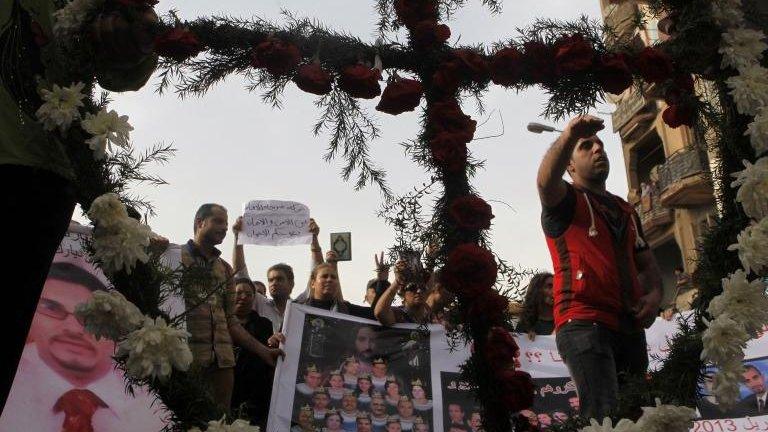Cairo bombing: Cairo Coptic Christian complex hit
- Published
Amateur footage reveals the anger and devastation inside the church
A bomb explosion in the Coptic Christian cathedral complex in the Egyptian capital Cairo has killed at least 25 people, officials say.
Dozens of others were injured in the blast in a chapel adjoining St Mark's cathedral during a Sunday service.
Many of the victims are thought to be women and children.
Egypt's Christian minority has often been targeted by Islamist militants. Christians gathered to show anger at the attack, the worst in years.
Egypt has seen a wave of attacks by militants since 2013 when the military overthrew President Mohammed Morsi, an elected leader who hailed from the Muslim Brotherhood, and launched a crackdown against Islamists.
Some of Mr Morsi's supporters blamed Christians for supporting the overthrow.
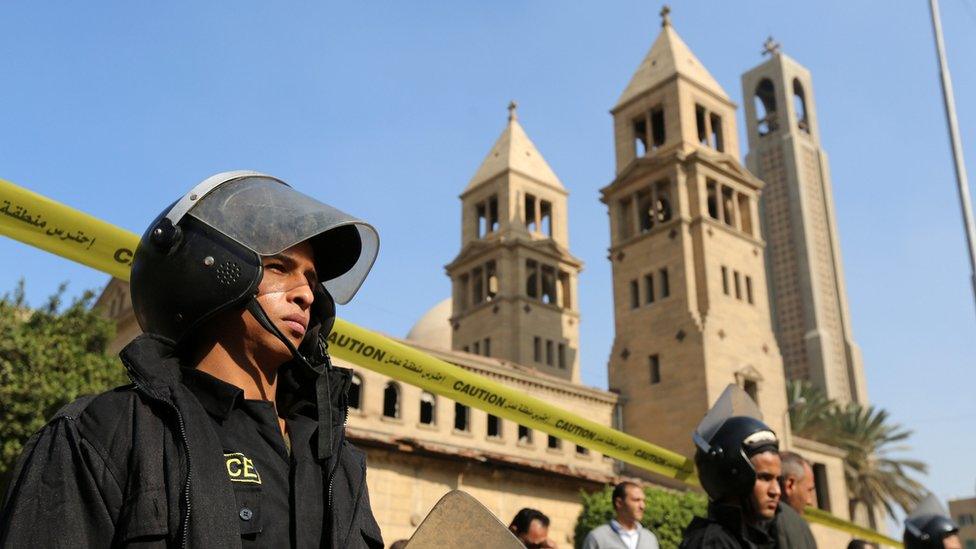
The chapel is next to St Mark's Coptic Cathedral, seat of the Church's pope
The explosion happened at about 10:00 local time (08:00 GMT). Video footage carried by regional media showed the interior of the church littered with broken and scattered furniture, along with blood and clothing on the floor.
"I found bodies, many of them women, lying on the pews. It was a horrible scene," said cathedral worker Attiya Mahrous.
Samia, eyewitness: "I left, and just two minutes later, the bomb went off"
"There were children. What have they done to deserve this? I wish I had died with them instead of seeing these scenes,'' another witness told the Associated Press news agency.
President Abdul Fattah al-Sisi has declared a three-day period of national mourning.
In a statement, he condemned the attack, calling for the perpetrators to be hunted down and punished.
"Vicious terrorism is being waged against the country's Copts and Muslims. Egypt will emerge stronger and more united from this situation," he said.
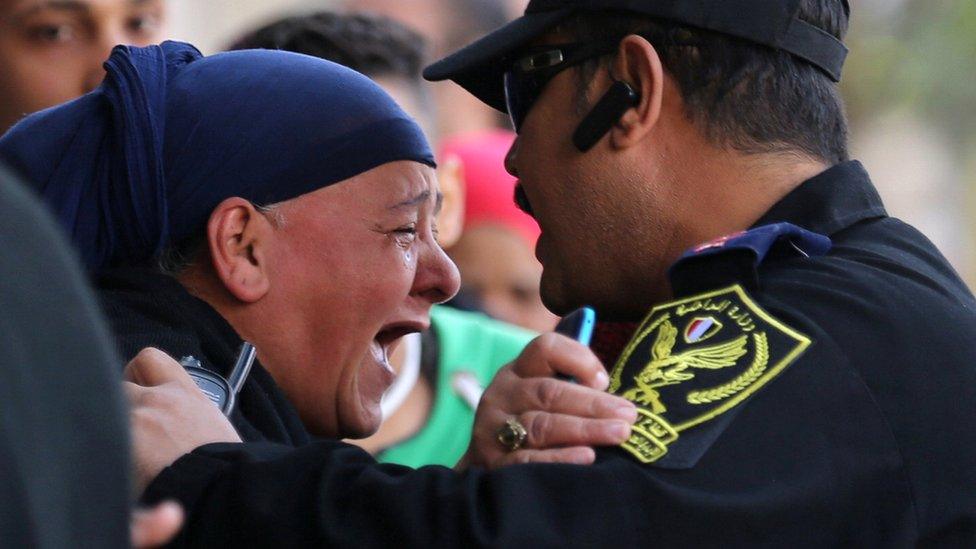
Police officers cordoned off the area from family members and other churchgoers
Coptic Christians make up about 10% of Egypt's population.
St Mark's Cathedral is the headquarters of the Coptic Orthodox church, and the home of its leader, Pope Tawadros II.

What is the Coptic Christian faith?
The Coptic Orthodox Church is the main Christian Church in Egypt. While most Copts live in Egypt, the Church has about a million members outside the country.
Copts believe that their Church dates back to around 50 AD, when the Apostle Mark is said to have visited Egypt. Mark is regarded as the first Pope of Alexandria - the head of their church.
This makes it one of the earliest Christian groups outside the Holy Land.
Coptic Christians are a significant minority in Egypt
The Church separated from other Christian denominations at the Council of Chalcedon (451 AD) in a dispute over the human and divine nature of Jesus Christ.
The early Church suffered persecution under the Roman Empire, and there were intermittent persecutions after Egypt became a Muslim country. Many believe that continues to this day.

Bishop Angaelos of the UK's Coptic Orthodox Church said his prayers were with Egyptian Copts, "as well as for the broader Egyptian society that fall victim to similar inhumane attacks."
On Saturday, six policemen were killed when a bomb exploded on a main road leading to the pyramids at Giza. The explosion, at a police checkpoint, was the deadliest attack on security forces in Cairo in more than six months.
A recently formed militant group called Hasm said it had carried out that attack.
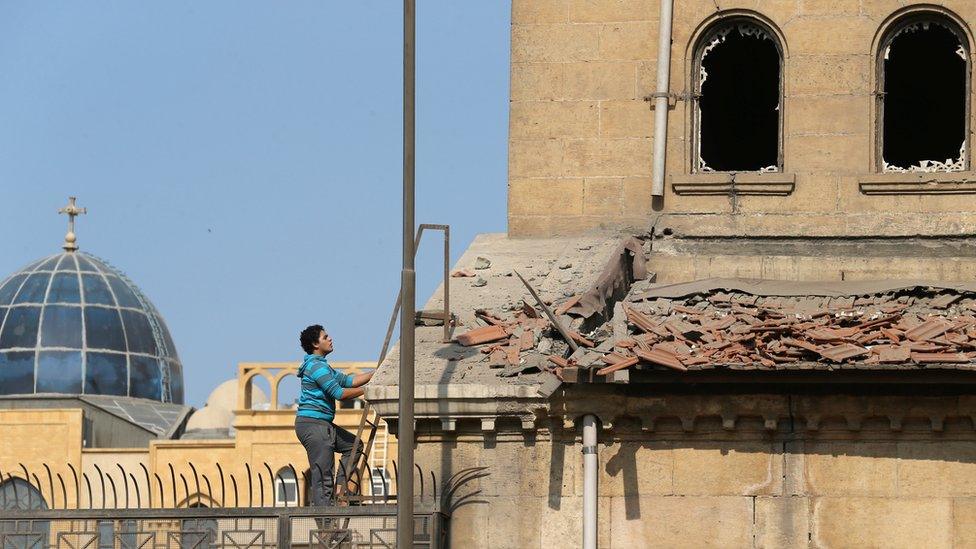
The force of Sunday's blast could clearly be seen
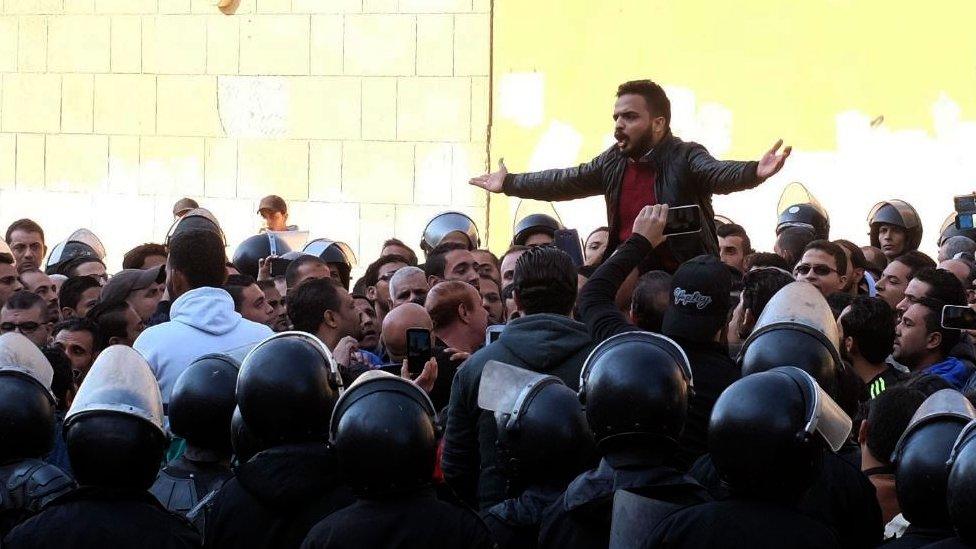
A crowd of protesters gathered outside the church, along with a heavy police presence
Egypt's Coptic Christian minority has long complained of discrimination in the mostly Muslim nation.
Two people were killed outside St Mark's cathedral in 2013, when people mourning the death of four Coptic Christians killed in religious violence clashed with local residents.
In February this year, a court sentenced three Christian teenagers to five years in prison for insulting Islam. The teenagers had appeared in a video, apparently mocking Muslim prayers, but claimed they had been mocking the Islamic State (IS) group following a number of beheadings.
Egypt has pursued a number of blasphemy cases since the country's 2011 uprising. Many of those cases have been against Copts.
Most of the Islamist militant attacks of recent years have been focused in the Sinai province, where an IS-linked jihadist group is active, but Cairo has also suffered a string of attacks in the past two years.
- Published16 February 2015
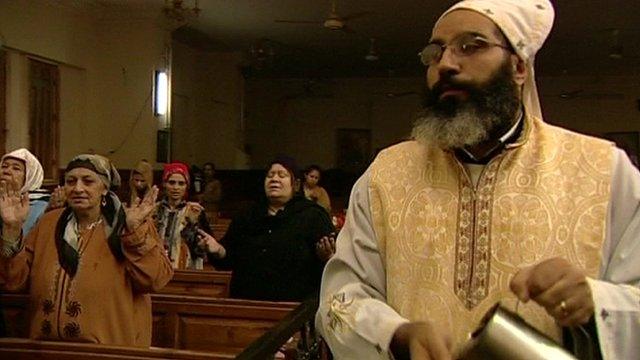
- Published25 February 2016
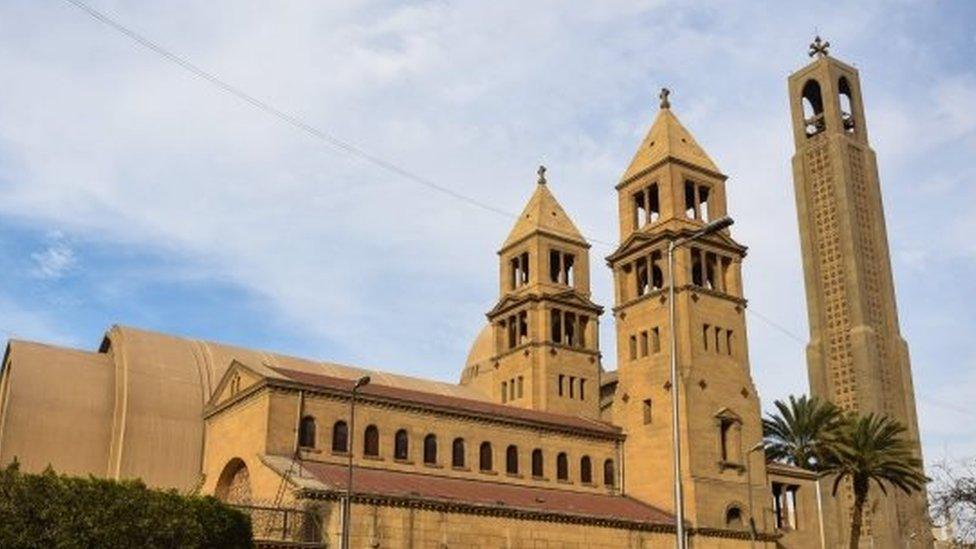
- Published1 January 2011
- Published12 August 2013
